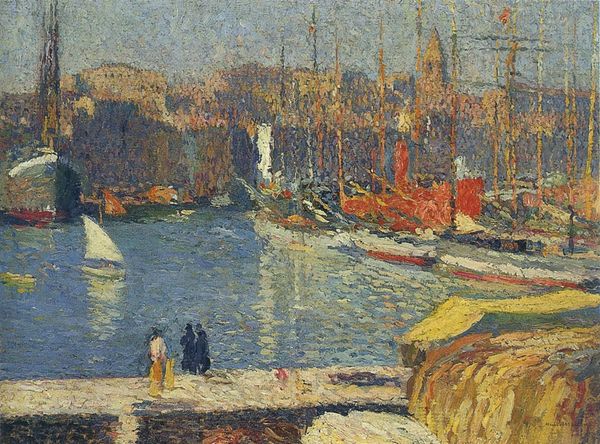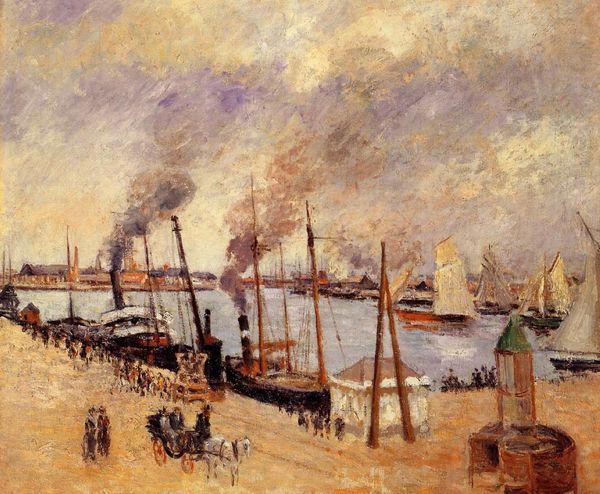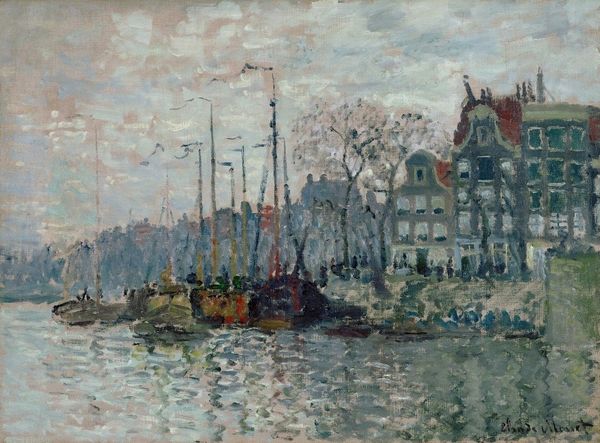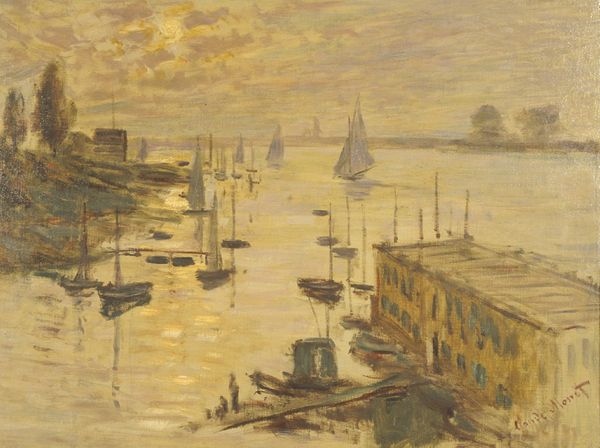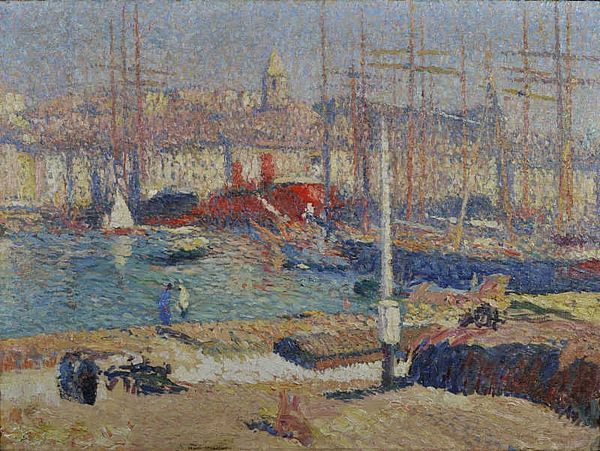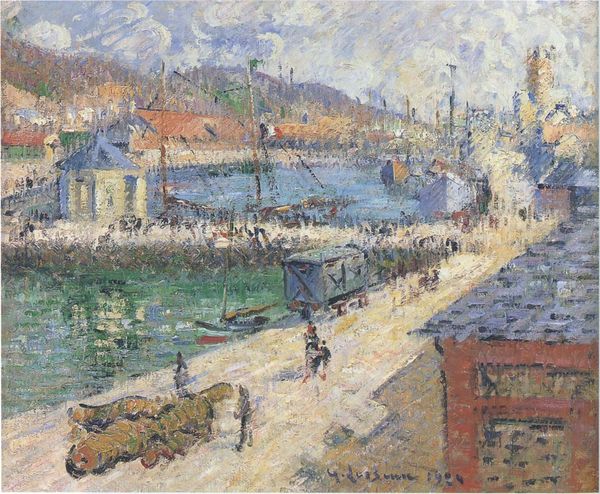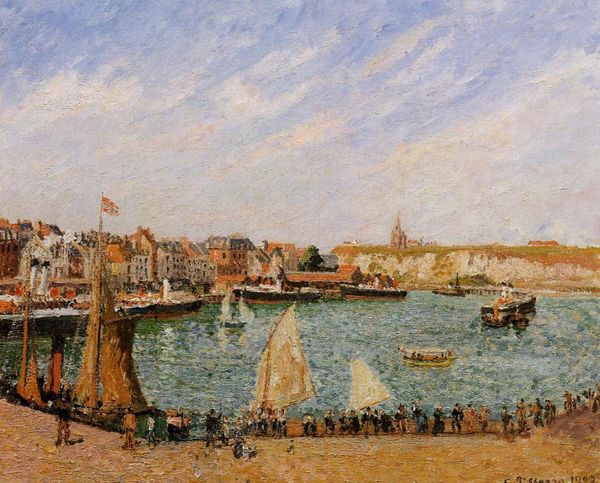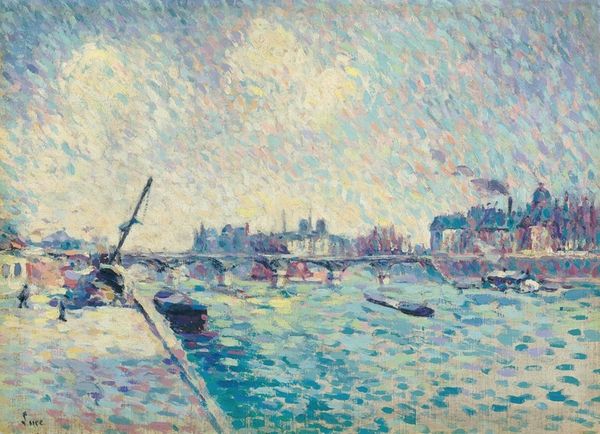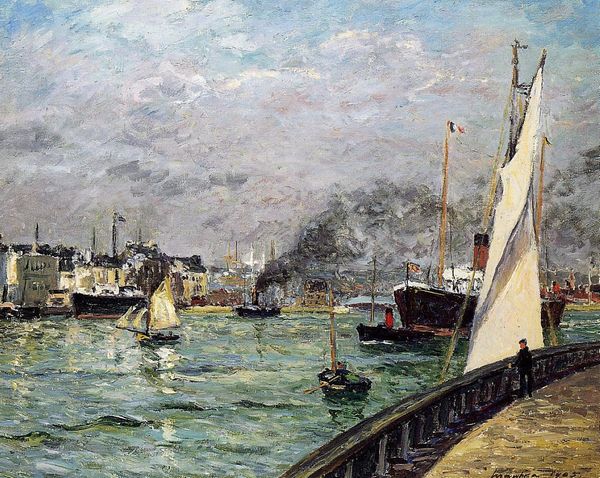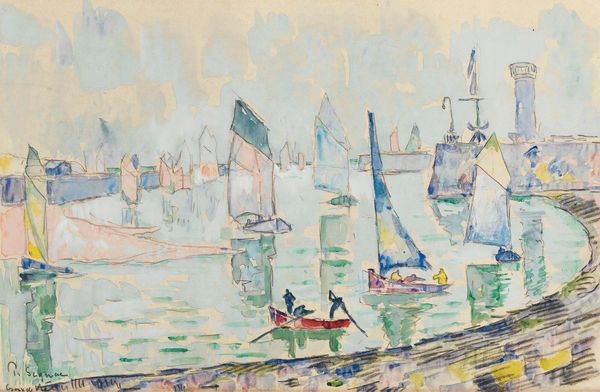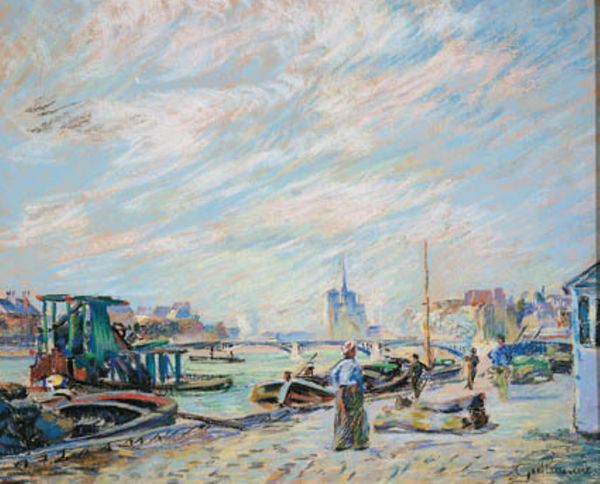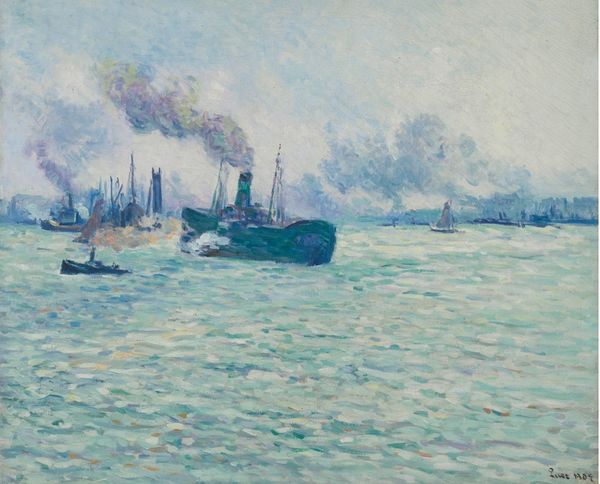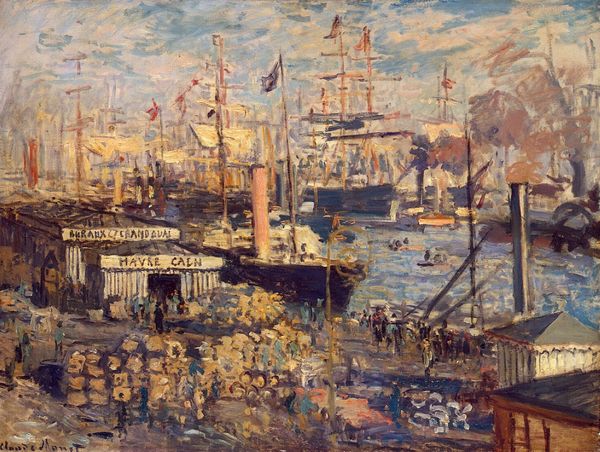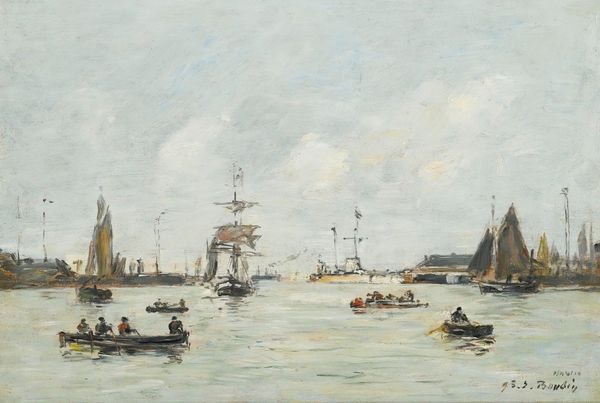
plein-air, oil-paint
#
impressionism
#
plein-air
#
oil-paint
#
landscape
#
oil painting
#
cityscape
Copyright: Public Domain: Artvee
Curator: Let’s take a look at Claude Monet’s “Port of Le Havre,” created in 1874. A cityscape brimming with ships, smoke, and human activity rendered with a very visible brushstroke, typical of the Impressionist movement. What are your first thoughts? Editor: The overriding feeling I get is one of airiness. Despite the busyness, the composition, with its open sky and shimmering water, feels incredibly light. Monet really captured the atmosphere here. The semiotic texture is quite palpable; notice how each element almost dissolves into the other, refusing rigid definition. Curator: It’s tempting to simply appreciate the technique, but let’s consider the historical context. This bustling port speaks to France’s rapidly industrializing economy in the late 19th century, driven in part by a newly empowered bourgeoisie who benefited from increased commercial traffic. This painting becomes, in part, an image of emergent class power. Editor: An intriguing interpretation! I see the potential social implications there. And yet I am still more captivated by how Monet uses the light itself to structure the image, using contrasting textures to guide your eye—the soft water and sky playing off against the relative firmness of the buildings to establish rhythm and direct attention. Curator: But shouldn't we question whose experience is centered? This image excludes the lives of the working class that toiled in these very docks, likely suffering labor exploitation, all for a view such as the one enjoyed by the people strolling on the boardwalk and potentially purchasing such artwork. Is there a hidden dialogue regarding wealth and labor in this composition? Editor: While the political commentary may be valid, it is secondary in the aesthetic experience for me. To me, the application of the plein-air technique brings a heightened sensitivity to the ephemeral, Monet's radical reduction of form into fleeting sensory data allows us to focus purely on the phenomenological reality of viewing this harbor. Curator: Interesting, how different experiences can lead to drastically opposing insights! Considering both historical context and technical skill might actually teach us more. Editor: A fitting compromise to highlight the fascinating dichotomies of this piece.
Comments
No comments
Be the first to comment and join the conversation on the ultimate creative platform.
